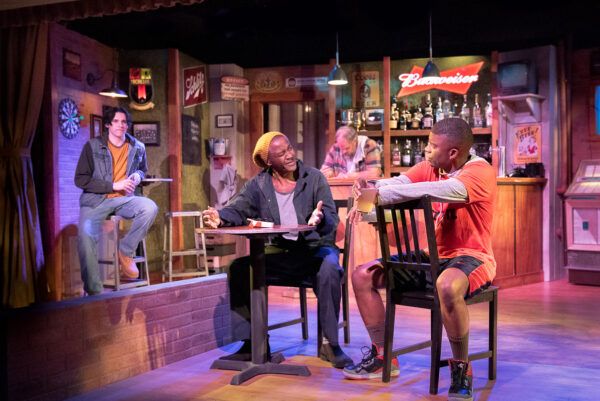
This is from an article in the May 4th edition of the LA Times, written by Steve Rathje, Leor Hackel and Jamil Zaki:
“Fourteen months into the pandemic, countless aspects of what was once everyday life have grown foreign. Near the top of the list is live theater. Sitting in a dark room with hundreds or thousands of strangers, watching dozens more strangers on stage, a story unfolding in the collective space — all feels hard to remember.”
“To some, this is a sad but negligible loss. Performing arts are often dismissed as a luxury, and even in better times arts funding or arts education in schools is regularly threatened.”
“But for others, theater is more than entertainment; it is a vital way to build psychological skills — especially empathy, or our ability to share, understand and care about others’ emotions.”
“We partnered with two theater companies … to survey 1,622 theatergoers either before or after they attended a production of three plays [one of them was “Sweat,” the play that we produced last March.] We handed out surveys to audience members immediately before or after seeing the plays (alternating every other night), and asked them a series of questions about their empathy for groups depicted in the plays — such as same-sex parents. We also asked about their beliefs on a number of issues related to the shows, such as inequality and racism.”
“After seeing the plays, we found that audience members expressed more empathy for the groups depicted onstage and changed their attitudes about a wide range of political issues
“The plays also changed behavior. We gave audience members the option to donate some of their payment for completing our study to charity. The more they gave to charity, the less money they would receive as a gift card for themselves. After seeing the plays, audience members donated more money to charity — whether or not the charity was related to the topics in the plays.”
“The effects we found in our studies were small, but statistically significant — for instance, an 11% increase in giving. But consider the scale involved. Before the pandemic, about 44 million people per year attended theater in the United States.”
“What artists intuitively understand, social scientists can now illustrate with data: The arts are essential to human flourishing. At a time when polarization and distrust are growing, our studies suggest that theater is one salve against these changes. Yet this art form has been shut down at a time when we need it most.”
“As we move beyond the pandemic, we will need to focus on healing collectively and connecting better. Providing greater access to the arts — and using them to share stories across cultural and social difference — will be an important part of this path to recovery.
For the full article click here.

